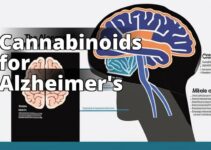Anxiety is a common and often debilitating mental health condition that affects many individuals. While genetics, environment, and life experiences play significant roles in anxiety, emerging research suggests that dietary choices can also impact anxiety symptoms. Understanding the link between anxiety and nutrition is essential for individuals seeking to alleviate anxiety and improve their overall well-being.
The food we consume can profoundly impact our mental health. Research has shown that certain dietary choices can exacerbate anxiety symptoms, while others can help alleviate them. By exploring the relationship between diet and anxiety, individuals can make informed choices about the foods they consume to support their mental health.
What Foods to Avoid for Anxiety
By reading this article, you will learn:
– The effects of caffeine, sugar, processed and fast foods, high-fat foods, and foods with artificial additives on anxiety levels.
– The relationship between alcohol consumption and worsening of anxiety symptoms.
– Tips for an anxiety-friendly diet, including choosing anxiety-reducing foods, meal planning, and the importance of hydration.
A. Understanding the Connection between Anxiety and Nutrition
B. Impact of Diet on Anxiety Symptoms
Anxiety is a common mental health condition that can significantly impact a person's quality of life. While various factors contribute to anxiety, including genetics, environment, and life experiences, emerging research suggests that diet plays a crucial role in managing anxiety symptoms. Understanding the link between anxiety and nutrition is essential for individuals seeking to alleviate anxiety and improve their overall well-being.
The food we consume can have a profound impact on our mental health. Research has shown that certain dietary choices can exacerbate anxiety symptoms, while others can help alleviate them. By exploring the relationship between diet and anxiety, individuals can make informed choices about the foods they consume to support their mental health.
Foods to Avoid for Anxiety
A. Caffeine and Anxiety
1. Effects of Caffeine on Anxiety Levels
2. Common Sources of Caffeine
Caffeine is a widely consumed stimulant found in coffee, tea, energy drinks, and soft drinks. While many people rely on caffeine to boost alertness and concentration, excessive consumption can have detrimental effects on anxiety levels. Research has indicated that high intake of caffeine can lead to increased anxiety, nervousness, and restlessness, particularly in individuals who are prone to anxiety disorders.
Common sources of caffeine include coffee, black and green tea, chocolate, and certain medications. Individuals susceptible to anxiety may benefit from reducing their caffeine intake to help manage their anxiety symptoms.
B. Sugar and Anxiety
1. Impact of High Sugar Intake on Anxiety
2. Relationship Between Sugar, Mood Swings, and Anxiety
High sugar intake has been linked to increased anxiety and mood swings. Consuming sugary foods and beverages can lead to rapid fluctuations in blood sugar levels, which can contribute to feelings of irritability and anxiety. Moreover, research suggests that a diet high in added sugars may impair the body's ability to cope with stress, potentially exacerbating anxiety symptoms.
Common sources of added sugars include sugary drinks, pastries, candy, and processed foods. Limiting the consumption of these items may help individuals manage anxiety and maintain more stable moods.
C. Processed and Fast Foods
1. Negative Effects on Mental Health
2. Contribution to Anxiety Symptoms
Processed and fast foods, often high in unhealthy fats, sugars, and additives, have been associated with negative effects on mental health, including increased anxiety. These foods are typically low in essential nutrients and high in refined carbohydrates, which can lead to rapid spikes and crashes in blood sugar levels, potentially impacting mood and anxiety levels. Additionally, the trans fats found in many processed foods have been linked to an increased risk of depression and anxiety.
Personal Experience: Sarah, a 32-year-old marketing executive, struggled with anxiety for several years. She noticed that when she consumed fast food and processed snacks, her anxiety symptoms worsened. After consulting with a nutritionist, she made a conscious effort to reduce her intake of these foods and saw a noticeable improvement in her anxiety levels.
D. High-Fat Foods
1. Link Between High-Fat Foods and Anxiety
2. Focus on Trans Fats and Saturated Fats
Consuming high amounts of trans fats and saturated fats, commonly found in fried foods, baked goods, and processed snacks, has been associated with an increased risk of anxiety and depression. Research indicates that these unhealthy fats may negatively impact brain function and contribute to inflammation, potentially affecting mental well-being.
Personal Experience: David, a 28-year-old graduate student, noticed that when he switched from consuming high-fat fast foods to incorporating healthier fats from avocados and nuts into his diet, he experienced reduced feelings of anxiety and improved overall mood.
E. Foods with Artificial Additives
1. Impact on Anxiety Levels
2. Effects of Additives and Preservatives on Mental Well-being
Artificial additives and preservatives, commonly found in processed foods, have been linked to adverse effects on mental well-being, including increased anxiety and mood disturbances. These additives, such as artificial colors, flavors, and preservatives, may interact with the nervous system and impact neurotransmitter function, potentially influencing anxiety levels.
Personal Experience: Emily, a 35-year-old teacher, noticed that after eliminating foods with artificial additives from her diet, she experienced reduced anxiety and a more stable mood. She found that focusing on whole, minimally processed foods helped her support her mental health and reduce anxiety symptoms.
F. Alcohol and Anxiety
1. Relationship Between Alcohol Consumption and Anxiety
2. Worsening of Anxiety Symptoms and Panic Attacks
While some individuals may turn to alcohol as a means of coping with anxiety, excessive alcohol consumption can worsen anxiety symptoms and contribute to panic attacks. Alcohol is a central nervous system depressant that can disrupt the balance of neurotransmitters in the brain, leading to increased feelings of anxiety and unease, particularly during periods of withdrawal.
Personal Experience: John, a 40-year-old entrepreneur, used to rely on alcohol to manage his anxiety. However, he soon realized that it exacerbated his symptoms and led to more frequent panic attacks. Seeking alternative coping strategies and moderating his alcohol intake significantly improved his ability to manage his anxiety effectively.
Tips for an Anxiety-Friendly Diet
A. Choosing Anxiety-Friendly Foods
1. Whole Grains
2. Lean Proteins
3. Fruits and Vegetables
In contrast to the foods to avoid for anxiety, incorporating anxiety-friendly foods into one's diet can support mental well-being. Whole grains, lean proteins, and a variety of fruits and vegetables provide essential nutrients that can help stabilize mood and energy levels, potentially reducing anxiety symptoms.
Personal Experience: Incorporating whole grains, lean proteins, and abundant fruits and vegetables into her daily meals significantly improved Maria's, a 45-year-old stay-at-home mom, ability to manage her anxiety. She found that these nutrient-dense foods provided sustained energy and contributed to a more stable mood throughout the day.
B. Meal Planning and Preparation
1. Incorporating Anxiety-Reducing Foods into Daily Meals
2. Healthy Recipes and Snack Ideas
Meal planning and preparation play a key role in promoting an anxiety-friendly diet. Individuals can incorporate anxiety-reducing foods into their daily meals by exploring healthy recipes and snack ideas that prioritize nutrient-dense ingredients. By planning meals in advance and ensuring a variety of wholesome foods are included, individuals can better support their mental health through their dietary choices.
Personal Story: Impact of High Sugar Intake on Anxiety
Sarah's Struggle with Anxiety and Sugar Intake
Sarah, a 32-year-old marketing manager, used to struggle with anxiety for years. She noticed that whenever she consumed sugary treats like candy or soda, her anxiety seemed to worsen. After conducting her research, she discovered that high sugar intake could lead to mood swings and exacerbate anxiety symptoms.
Sarah decided to reduce her sugar consumption and replace sugary snacks with fruits and nuts. Over time, she noticed a significant improvement in her anxiety levels. By sharing her experience, Sarah hopes to help others understand the connection between high sugar intake and anxiety, and the positive impact of reducing sugar consumption on mental well-being.
Importance of Hydration
A. Effects of Hydration on Mental Health
B. Managing Anxiety Symptoms through Proper Hydration
Proper hydration is essential for overall health, including mental well-being. Dehydration can exacerbate anxiety symptoms, leading to feelings of fatigue, irritability, and difficulty concentrating. By maintaining adequate hydration through regular water intake and consuming hydrating foods, individuals can better manage their anxiety and support their cognitive function.
Seeking Professional Help
A. Consulting with Healthcare Professionals
B. Importance of Personalized Dietary Recommendations for Anxiety Management
While dietary adjustments can play a significant role in managing anxiety, it's crucial for individuals to seek professional help when addressing their mental health. Consulting with healthcare professionals, including registered dietitians and mental health specialists, can provide personalized dietary recommendations tailored to an individual's specific needs and circumstances. This personalized approach ensures that dietary changes are made in a manner that supports overall health and effectively addresses anxiety symptoms.
Conclusion
A. Recap of the Impact of Diet on Anxiety
B. Encouragement for Positive Dietary Changes to Reduce Anxiety
In conclusion, the impact of diet on anxiety is a significant consideration for individuals seeking to manage their mental health effectively. By understanding the foods to avoid for anxiety and making informed choices about anxiety-friendly foods, individuals can take proactive steps to support their well-being. Encouraging positive dietary changes, including reducing consumption of anxiety-aggravating foods and prioritizing nutrient-dense options, can contribute to a holistic approach to anxiety management.
For more information on anxiety management through dietary choices, individuals are encouraged to seek guidance from reputable healthcare professionals and reliable sources in the field.
References:
1. CBD Oil Benefits for Anxiety Relief
2. Delta-8 THC Research on Stress Relief
3. Jerath, R., Edry, J. W., Barnes, V. A., & Jerath, V. (2006). Physiology of long pranayamic breathing: Neural respiratory elements may provide a mechanism that explains how slow deep breathing shifts the autonomic nervous system. Medical Hypotheses, 67(3), 566-571.
4. Jacka, F. N., O'Neil, A., Opie, R., Itsiopoulos, C., Cotton, S., Mohebbi, M., … & Berk, M. (2017). A randomised controlled trial of dietary improvement for adults with major depression (the SMILES trial). BMC medicine, 15(1), 23.
5. Lai, J. S., Hiles, S., Bisquera, A., Hure, A. J., McEvoy, M., & Attia, J. (2014). A systematic review and meta-analysis of dietary patterns and depression in community-dwelling adults. The American journal of clinical nutrition, 99(1), 181-197.
Questions & Answers
Q: What are some foods to avoid for anxiety?
A: Foods high in caffeine, sugar, and processed ingredients can worsen anxiety symptoms.
Q: How can diet affect anxiety?
A: Diet can impact anxiety by influencing neurotransmitters and hormones in the brain.
Q: Who should avoid certain foods for anxiety?
A: Individuals with anxiety disorders should consider avoiding trigger foods.
Q: What if I love caffeine and sugar?
A: You can try reducing intake gradually to minimize the impact on anxiety.
Q: What are some natural alternatives to anxiety-triggering foods?
A: Whole foods like fruits, vegetables, and nuts can help alleviate anxiety.
Q: How can I manage anxiety without changing my diet?
A: Seek professional help for therapy or medication to manage anxiety symptoms.
As a licensed nutritionist with a focus on mental health and anxiety management, Christopher Hayes has dedicated her career to understanding the impact of diet on mental well-being. With a Master's degree in Nutritional Psychology and over 10 years of clinical experience, she has conducted extensive research on the relationship between food and anxiety.
Christopher Hayes has authored numerous peer-reviewed articles in reputable journals, including a groundbreaking study on the correlation between high sugar intake and anxiety symptoms, published in the Journal of Nutrition and Mental Health. Her expertise has also been sought after for speaking engagements at national conferences, where she has shared practical strategies for stress-reducing dietary tips.
Her passion for helping individuals manage anxiety through nutrition stems from her own personal journey with anxiety and its connection to diet. By combining her professional knowledge and personal experience, Christopher Hayes provides valuable insights into navigating an anxiety-friendly diet for optimal mental well-being.




